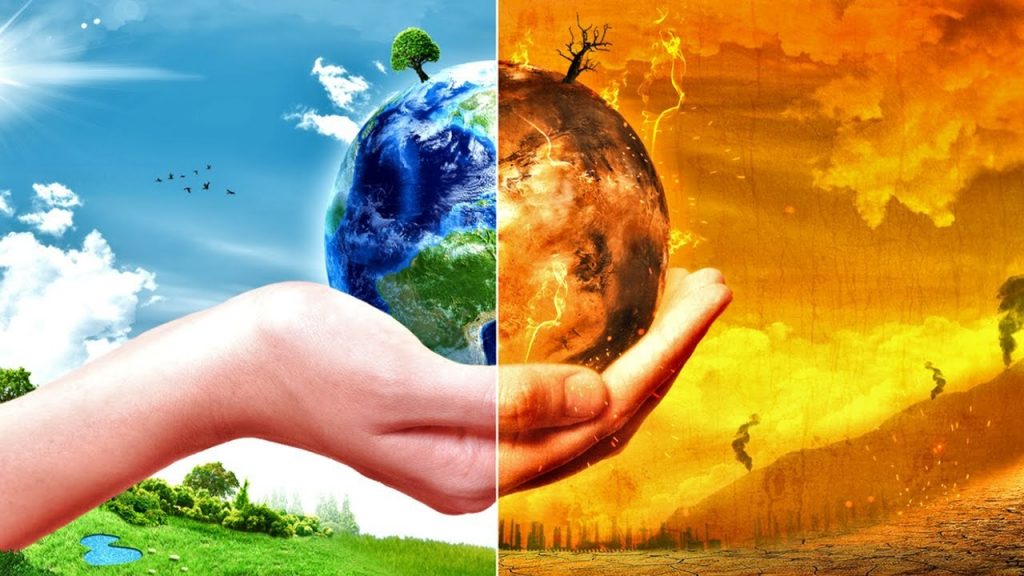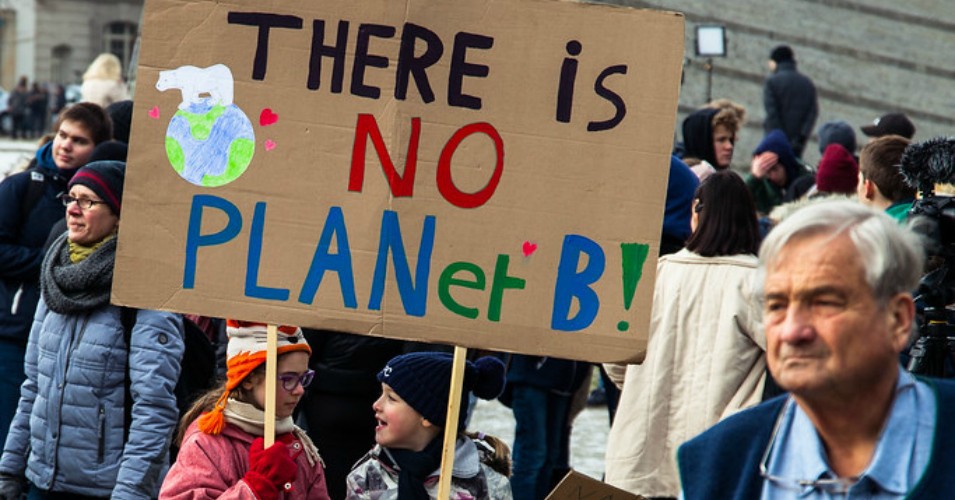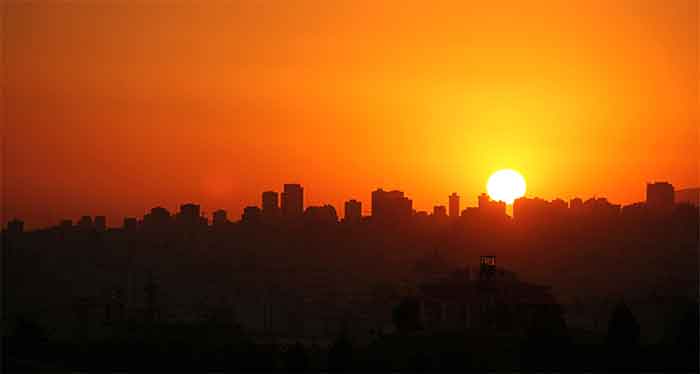
One of the few rays of hopeful sunshine in the UK’s currently bleak political landscape is the Climate and Ecological Emergency Bill. In fact, I feel like it is such a vitally important development that I want to use this article to urge you to get behind it, while also offering a rather different perspective on why I feel it matters so much.
The Bill was created by a coming together of activists, scientists and policy experts, and it sets out the key elements that government needs to address if they were to actually act, from the core of their being, as though this were a climate and ecological emergency, at a speed and ambition commensurate with the scale of the challenge (you can read the Bill itself here). It is rather brilliant. I also believe that, if enacted, it would do so much more than just what is set out in the Bill itself.
This article will be based on a few assumptions which I have come to through the researching and writing of ‘From What Is to What If’. The first is that imagination, that “ability to see things as if they could be otherwise” as John Dewey put it, and having the capacity to be imaginative, is fundamentally important to our collective embracing of the changes that this emergency demands of us. We need creativity and the boldness to reimagine and rebuild everything.
Secondly, we are living in a kind of ‘perfect storm’ of factors that are causing our collective imagination to wane: unaddressed trauma, anxiety, the impacts of austerity, systemic racism, the lack of space in many peoples’ lives, colonisation, the power and addictive nature of our online lives, an education system that has largely purged imagination from many young peoples’ lives, and much more. Together they form a kind of ‘disimagination machine’ that is proving ruinous and which we urgently need to reverse.
I also came to realise that one of the beautiful things about imagination is that it thrives on limits. It needs limits in order to flourish. Which is why we use haikus, or rap, or limericks. Which is why when we study improv, we are given scenarios in which the imagination can take over (“You are a nervous bus conductor on your first day in the job, and You are a really famous person who has lost her bus ticket. Go”). And nowhere is this more apparent than in the area of the climate and ecological emergency.
An imaginative person looks at the ‘limits’ imposed by these intersecting crises, and the many others that accompany them, and their imagination kicks in, reimagining food systems, economic models, investment approaches, models of democracy, architecture, planning, work, streets, transport, beer recipes. The unimaginative person, the person who refuses to recognise such limits, clings to what they know and dismisses those who are doing the reimagining as being ‘unrealistic’ or somehow ‘naive’.
We saw this embodied recently in Donald Trump’s claims that making buildings more energy efficient was a nonsense because it would mean that we would have to live in buildings with no windows (seriously), that water efficient showerheads were unimaginable because he likes to wash his hair in the shower (or something) and that energy-efficient dishwashers need turning on “12 or 13 times” just to get the plates clean.
The Climate and Ecological Emergency Bill is so powerful because its magic lies away from its pages. Its magic lies in its invitation for a whole society to begin, finally, to step up to being boldly imaginative within a new narrative. There will be those libertarian TV presenters, politicians think tanks and radio hosts who will still try to cling to the pointless argument that somehow taking such bold steps will stifle ‘progress’ or that ‘we can’t afford it’ or some such silliness, but my point is that this Bill, if enacted, would lead to a revolution of the imagination across the country, one that could go on to inspire something similar across the world.
For the UK to set out to ambitiously pursue decarbonisation with really bold targets, to move on from the fantasy that one day someone will invent an amazing machine that sucks CO2 out of the air, to include emissions from aviation and the importation of consumer goods, to hugely boost soils and forests in their roles as carbon sinks, all open up so much possibility and room for the imagination.
There’s the thrilling possibility of homes that are beautiful and healthy, which cost nothing to heat, which are affordable and which use more local materials. Or a new food and farming systems which links cities to the land around them and transforms their economies as a result. Or how about the liberating of space in cities, freeing them from the tyranny of the car and filling them instead with bicycles, people walking, with trees, play, food growing, wildlife and art? This Bill would give a clear signal to the education system, to business, to investors, that this is now the ‘new normal’, and that brilliant ideas and innovation will be met halfway with support and delight.
The Bill’s demand for a Citizens Assembly could be central to this. I remain convinced that, if done well, Citizens’ Assemblies can be a key part of the solution. I have seen then done well, and I have seen them done not so well. They need sufficient time for participants to really go on a journey of understanding, they need to not be just about information, but also need to make space for digestion, for contemplation, for grief and for imagination.
But when done well, they can be deeply transformative, unlocking a collective wisdom and mature thinking on behalf of future generations that our current democratic system could only dream of. The power here though is in the possibility it offers for this embrace of new democratic models to not stop there, but to run through society, with greater local democracy, with Peoples’ Assemblies, Civic Imagination Offices, the raft of deliberative democracy approaches spreading wide and fast.
A future in which this Bill has been implemented would be the time of our lives. Anything would feel possible. We would feel like there was, finally, a shared collective purpose. It would be transformative. Our cities would fill with trees, delicious air, performers, gardens and wildlife. Our countryside would once again buzz with biodiversity and wildness. While the impacts of climate change that we are already locked into wouldn’t somehow magically disappear, we would know we were now heading for a future that was the result of our having done everything we could possibly have done, rather than the result of our inaction, apathy and political paralysis.
It would feel like all of the brilliant inventiveness of the Industrial Revolution compressed into 20 years, just this time without its toxic legacy, social inequality and extractive colonialism parts. Finance would change. Structures and businesses that clung to the past would crumble to dust and be replaced by new, more responsible, wise and purpose-driven businesses. We’d insulate all the houses. We’d plant oh so many trees. We’d turn office blocks into hubs for this new economy. We’d rebuild the soils.
While this Bill promises a future that would be deeply transformative, one that thrives deliciously on the ‘limits’ now imposed on us by decades of inaction and by the laws of physics, it will, like all great social leaps from suffrage to LGBT rights, only happen because people power makes it happen. And so, I end with a heartfelt plea. Please dedicate yourself to making this Bill a reality. Get your Transition group, or any other organisation you are part of, to sign up in support of it. Be part of the Rebellion that starts on September 1st outside Parliament, to demand it be adopted and passed. And speak to your MP to demand that they support it.
While it is true, of course, that the facts and the science around climate change should absolutely be enough to see this Bill passed without debate, I believe that one of the things we all too often neglect is the cultivation of longing. How do we talk, as I have tried to do here, of what this Bill could enable and unleash in such a way that we can create, in everyone we talk to, a profound longing for that world? That’s how I see this Bill, as being the key to unlocking so much. Let us share that longing with everyone we meet.
Rob Hopkins is a cofounder of Transition Town Totnes and Transition Network, and the author of The Transition Handbook, The Transition Companion, The Power of Just Doing Stuff, 21 Stories of Transition and most recently, From What Is to What If: unleashing the power of imagination to create the future we want. He presents the podcast series ‘From What If to What Next‘ which invites listeners to send in their “what if” questions and then explores how to make them a reality. In 2012, he was voted one of the Independent’s top 100 environmentalists and was on Nesta and the Observer’s list of Britain’s 50 New Radicals. Hopkins has also appeared on BBC Radio 4’s Four Thought and A Good Read, in the French film phenomenon Demain and its sequel Apres Demain, and has spoken at TEDGlobal and three TEDx events. An Ashoka Fellow, Hopkins also holds a doctorate degree from the University of Plymouth and has received two honorary doctorates from the University of the West of England and the University of Namur. He is a keen gardener, a founder of New Lion Brewery in Totnes, and a director of Totnes Community Development Society, the group behind Atmos Totnes, an ambitious, community-led development project. He blogs at transtionnetwork.org and robhopkins.net and tweets at @robintransition.
SIGN UP FOR COUNTERCURRENTS DAILY NEWSLETTER












































